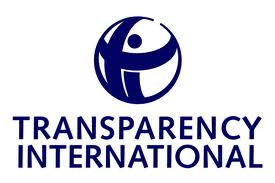 New Delhi, 3 December 2013 – Corruption caused due to bribery, abuse of power and unethical dealings continues to ravage nations around the world. More than two-thirds of the 177 countries ranked in Transparency International (TI)’s Corruption Perception Index 2013 (CPI 2013), score below 50, on a scale from 0 (highly corrupt) to 100 (Clean). It shows that public institutions need to be more transparent, and politicians and government officials more accountable.
New Delhi, 3 December 2013 – Corruption caused due to bribery, abuse of power and unethical dealings continues to ravage nations around the world. More than two-thirds of the 177 countries ranked in Transparency International (TI)’s Corruption Perception Index 2013 (CPI 2013), score below 50, on a scale from 0 (highly corrupt) to 100 (Clean). It shows that public institutions need to be more transparent, and politicians and government officials more accountable.
India again ranks at the 94th position this year as last year, with a score of 36. Such a low rank and score could be attributed to recently exposed scams of corruption involving government officials, politicians and private companies. However, due to an update in the methodology, CPI score of 2011 and previous editions are not comparable with CPI 2012 and 2013 scores.
To calculate India’s position this year, ten out of 13 independent data sources specializing in governance and business climate analysis have been used. These, including Bertlesmann Foundation, World Bank and World Economic Forum, help in measuring perceptions of corruption in public sector, enables cross country comparability, comparison over time and quantitative granularity.
Denmark and New Zealand tie for the first place this year, with a score of 91, followed by Finland and Sweden (score 89) and Singapore (score 86). Afghanistan, North Korea and Somalia cling to the bottom with a score of 8.
TI warned future efforts to respond to climate change, economic crisis and extreme poverty will face a massive roadblock in the shape of corruption. International bodies like the G-20 must crack down on money laundering, make corporations more transparent and pursue the return of stolen assets.
“Corruption can be tackled only if various stakeholders join hands in their effort to clean the country”, said Justice (Retd) Kamleshwar Nath, Chair of Transparency International India (TII). To achieve this, TII is advocating for clean public procurement through the Integrity Pact, train rural community about anti-corruption tools, and empowers them to demand accountability from their leaders and public authorities through Help Lines, Development Pact and Pahal (Initiative) programmes. We are also working with private sector to advocate for strengthening Prevention of Corruption Act to tackle supply side of corruption. We, therefore, plead for the immediate enactment of accountability legislations, including Lokpal bill, whistleblowers bill and grievance redressal bill. This is important to ensure the effectiveness of various rights-based legislations, which would be rendered ineffective, in the absence of time-bound redressal of complaintsin the event of non-delivery of entitlements.
TII also advocates for:
- Appointment of Lokayuktas (State-level Ombudsman) in all States.
- Compulsory audit of accounts of political parties.
- Electoral reforms to prevent tainted politicians from contesting elections and holding the position of power.
- Enactment of legislation for forfeiture of illegally acquired property.
- Speedy trial of criminal cases against Ministers, MPs and MLAs.
- Effective Implementation of UN Convention Against Corruption.
TII is the accredited India chapter of Transparency International, an international civil society organization based at Berlin that has turned the fight against corruption into a worldwide movement.
CPI Score of South Asian Countries
Calculated on the Updated Methodology
2013
|
Country Rank |
Country/Territory |
CPI 2013 Score |
Surveys Used |
Standard Error |
90% Confidential interval |
Scores range |
||
| 31 | Bhutan | 63 | 4 | 2.6 | 59 | 67 | 57 | 81 |
| 91 | Sri Lanka | 37 | 7 | 2.1 | 33 | 40 | 28 | 44 |
| 94 | India | 36 | 10 | 2.2 | 32 | 40 | 24 | 47 |
| 116 | Nepal | 31 | 5 | 1.4 | 29 | 33 | 28 | 35 |
| 127 | Pakistan | 28 | 8 | 3.0 | 23 | 33 | 19 | 42 |
| 136 | Bangladesh | 27 | 7 | 4.1 | 20 | 34 | 21 | 50 |
2012
|
Country Rank |
Country/Territory |
CPI 2012 Score |
Surveys Used |
Standard Error |
90% Confidential interval |
Scores range |
||
| 33 | Bhutan | 63 | 3 | 3.6 | 57 | 69 | 58 | 70 |
| 79 | Sri Lanka | 40 | 7 | 1.3 | 38 | 42 | 35 | 44 |
| 94 | India | 36 | 10 | 2.1 | 33 | 40 | 24 | 47 |
| 139 | Nepal | 27 | 5 | 2.4 | 23 | 31 | 22 | 35 |
| 139 | Pakistan | 27 | 8 | 2.3 | 23 | 31 | 19 | 38 |
| 144 | Bangladesh | 26 | 7 | 4.1 | 20 | 33 | 21 | 50 |
